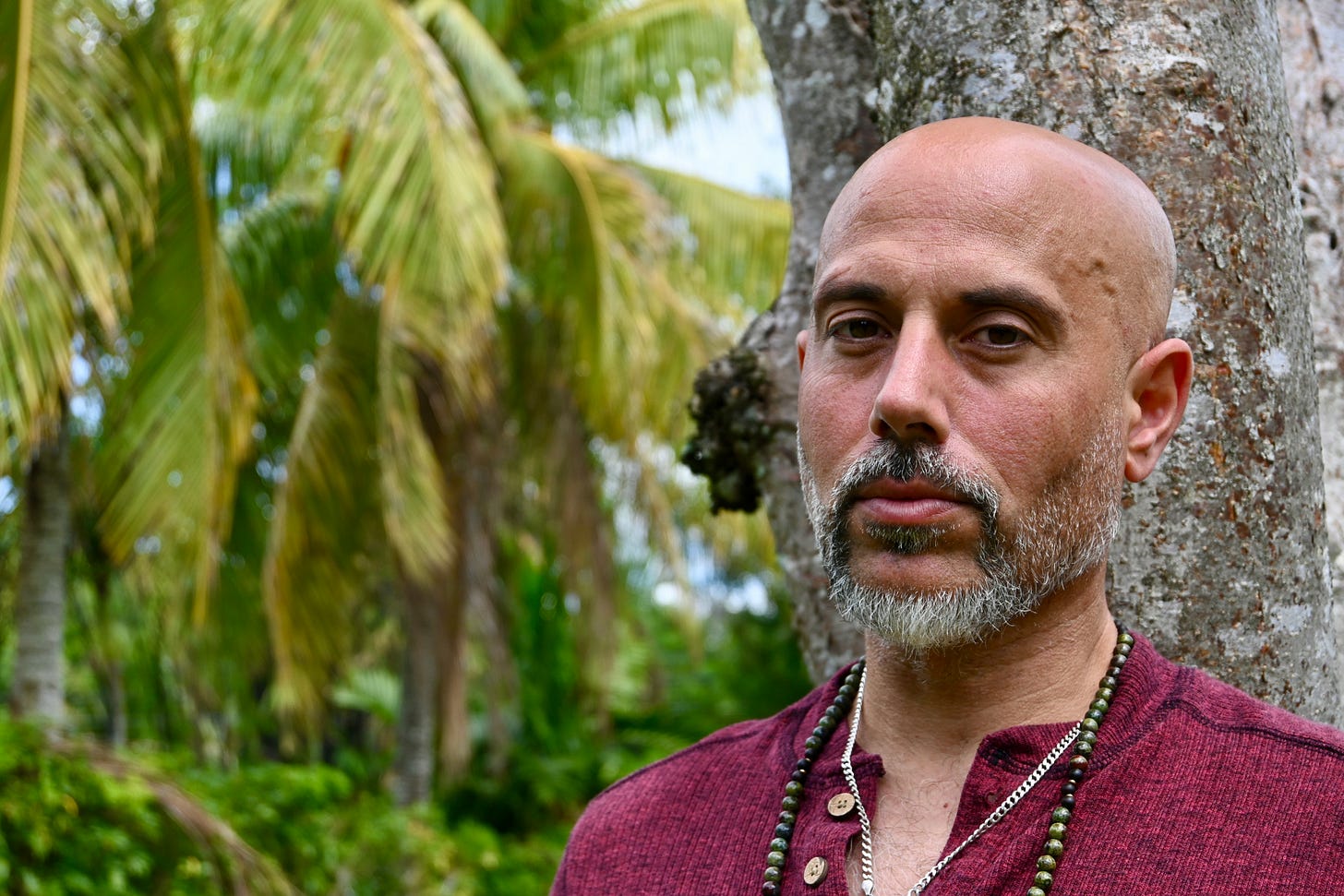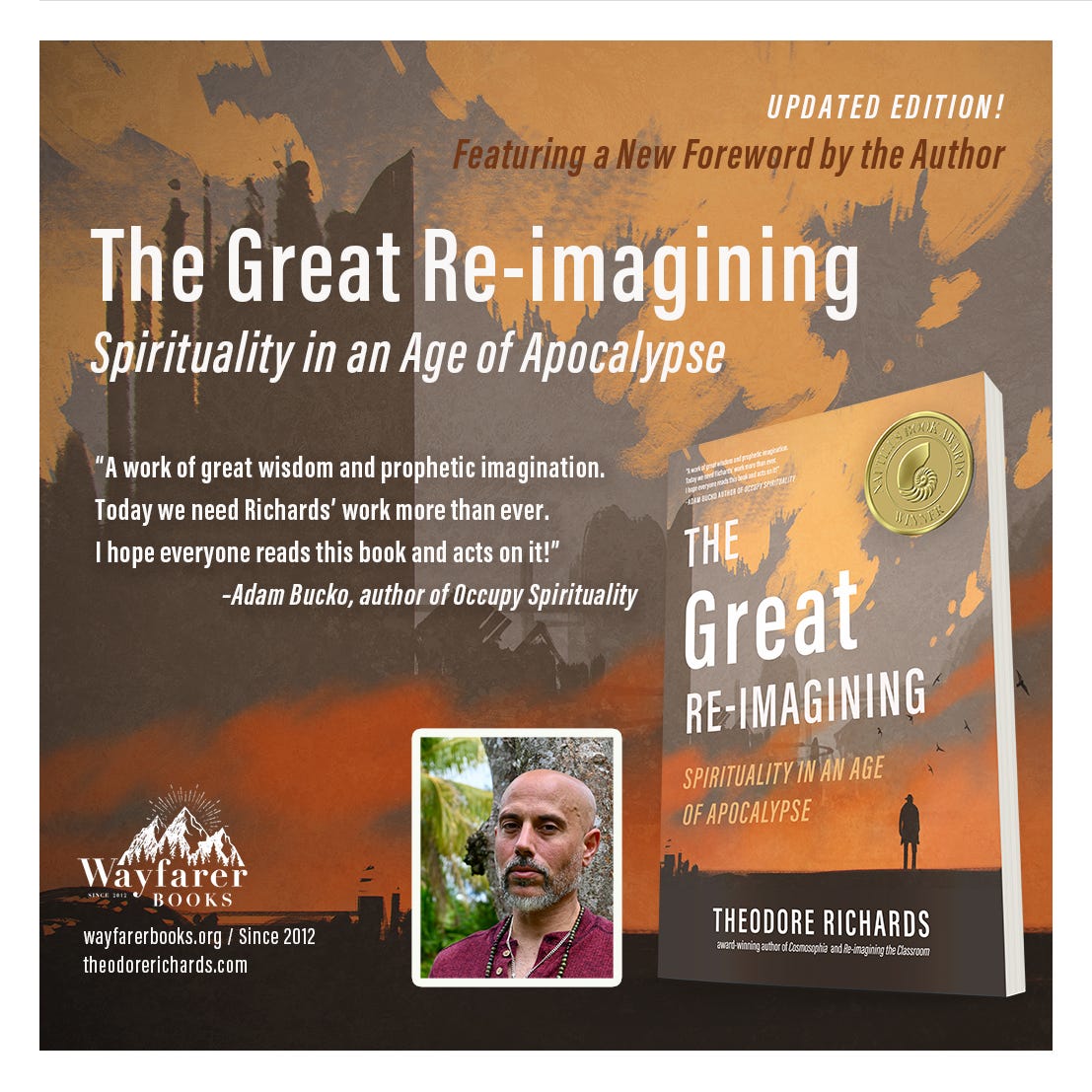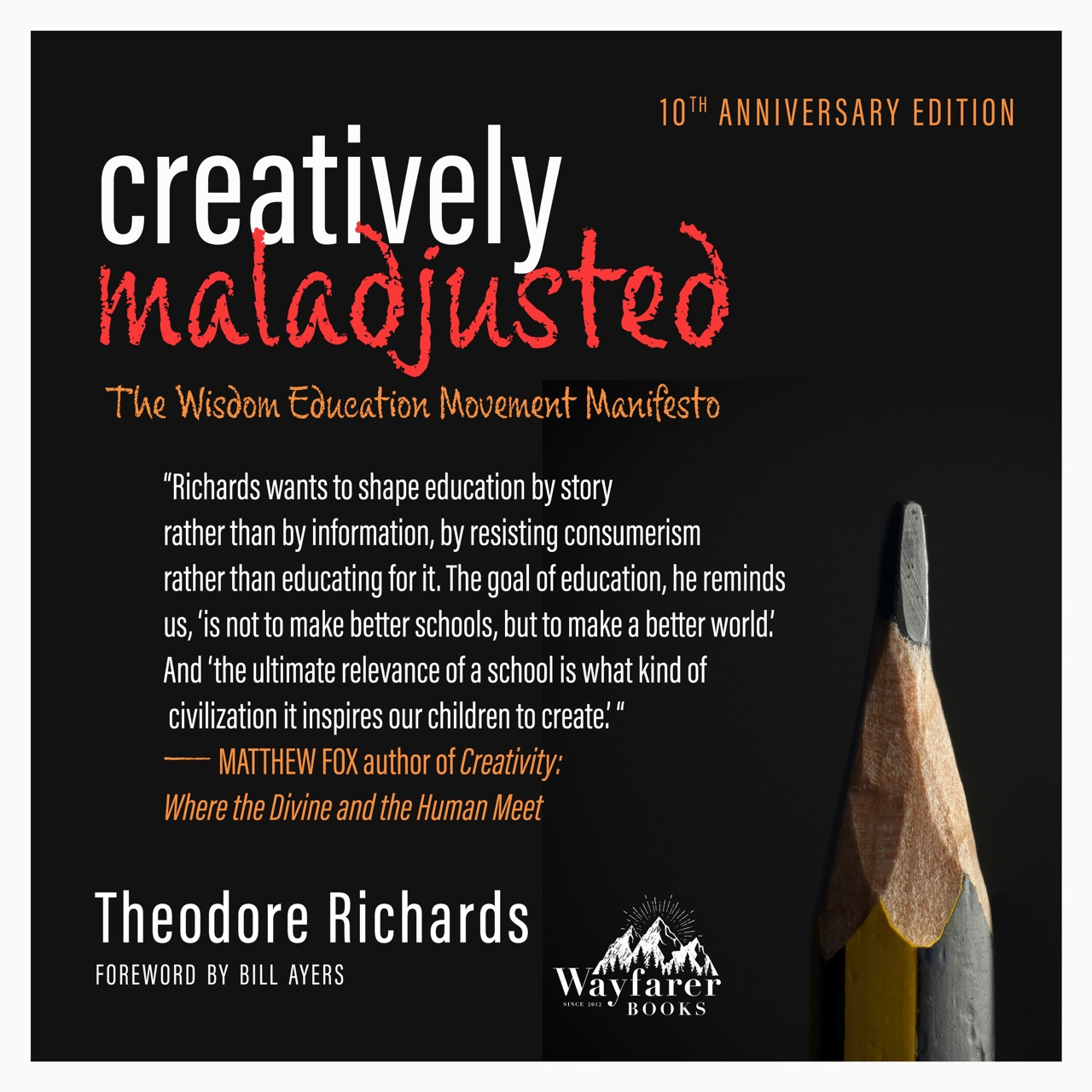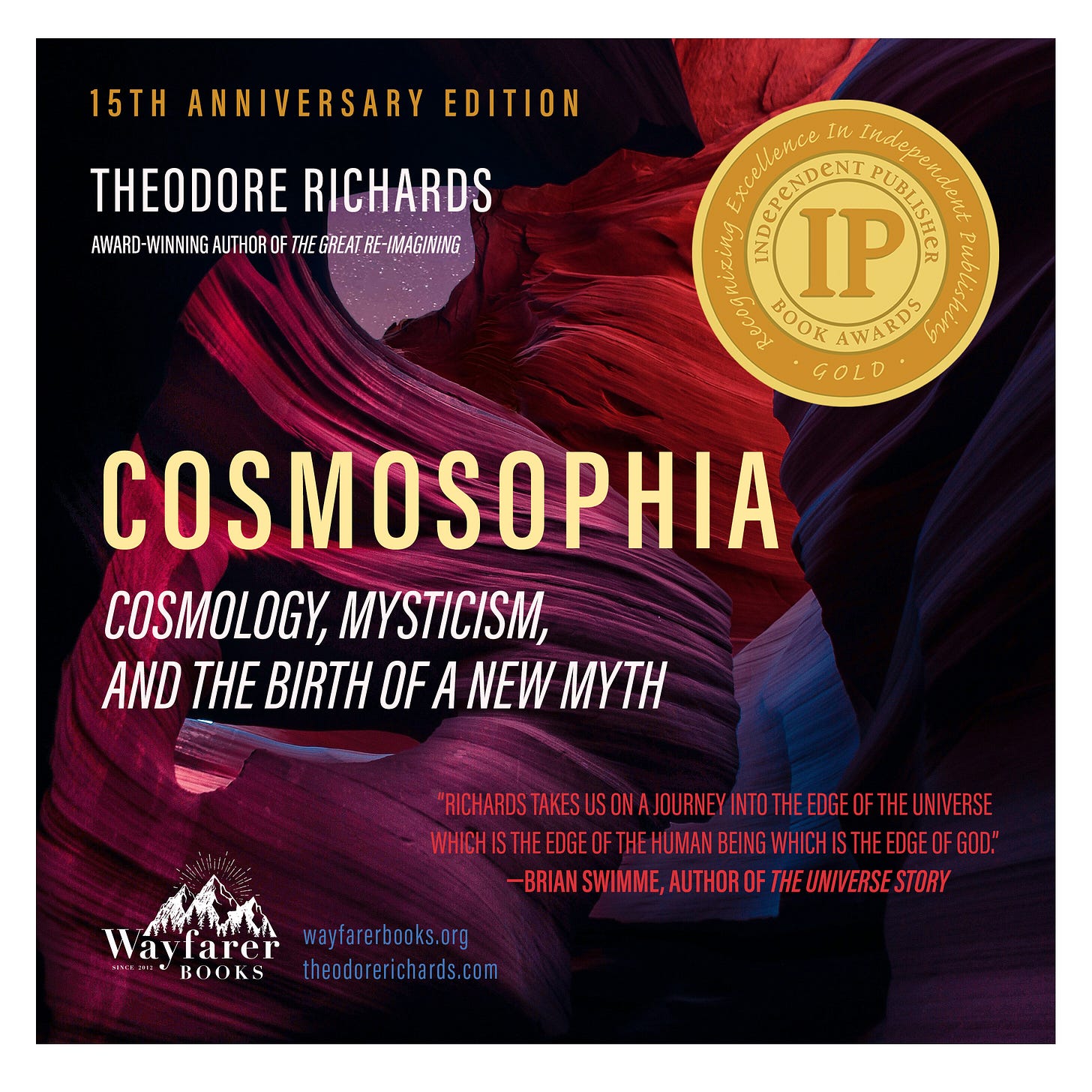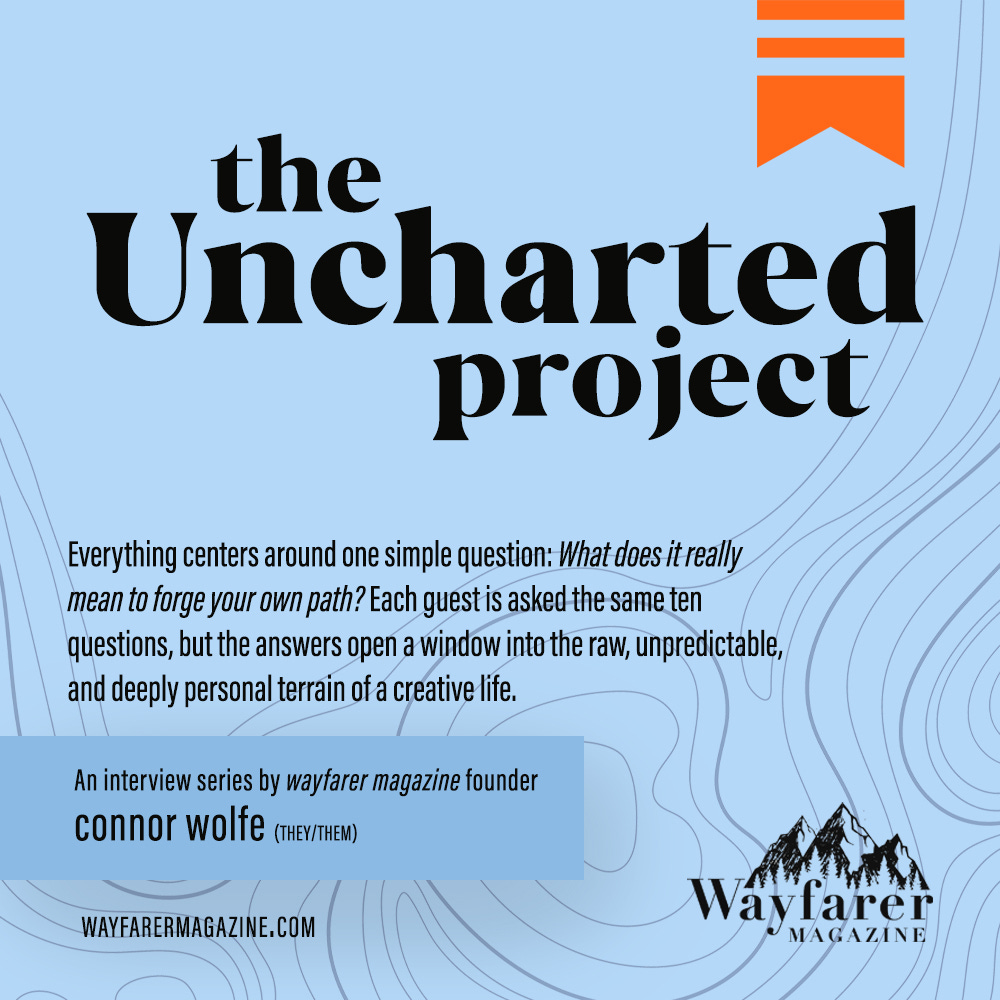UNCHARTED: Theodore Richards
No map. No limits. Just the journey. An interview series with artists, writers, and disrupters by Connor Wolfe
Welcome to Uncharted: No map. No limits. Just the journey.
I’m Connor Wolfe, Founder of Wayfarer Books and Wayfarer Magazine, and I created this series around one simple question: What does it really mean to forge your own path? Each guest is asked the same ten questions—but the answers open a window into the raw, unpredictable, and deeply personal terrain of a creative life.
Today we are catching up with Theodore Richards (he/him), is an educator, poet, and philosopher, and the founder of The Chicago Wisdom Project. His work is dedicated to re-imagining education and creating new narratives about our place in the world. He has received degrees from various institutions, including the University of Chicago and The California Institute of Integral Studies, but has learned just as much studying the martial art of Bagua; teaching in various settings and students; and as a traveler from the Far East to the Middle East, from southern Africa to the South Pacific. He is the author of eight books and numerous literary awards, including two Nautilus Book Awards and three Independent Publisher Awards. He lives on the south side of Chicago with his wife and three daughters.
Q: What's lighting you up creatively right now?
These are hard times. There is so much suffering and cause for despair. That said, part of what’s going on is an unraveling of old systems and ways of being. I see that as an opportunity: Something new is being unveiled. So, rather than think of clinging to the old systems as they are being dismantled, let’s think of what we can create that’s new and better. For example, let’s take a look at education, an area that I spend a lot of time in. You’ve got fascists trying to dismantle it or use it for a racist or an anti-queer agenda (among other things) and that’s terrible. But I am working at thinking of entirely new forms of education rather than trying to protect what’s being dismantled.
And this is woven into my creative work. When we choose to look at ourselves and the world authentically and courageously, something new emerges. For me, that emergence is what lights me up.
Q: What's the last thing that truly captivated you—an idea, a place, a piece of art, a poem, a moment?
I will name three things from a recent trip I took to Italy with my family.
Seeing Caravaggio’s “The Conversion on the Way to Damascus” in a church in Rome. The painting was used as the cover to my novel, The Conversions. I love what Caravaggio does with light in his work. And I love how one can see art in Italy at churches as opposed to museums.
After Rome we were in Naples, a city that generally inspires me. One of the world’s most beautiful cities, and so rich culturally. Truly a Mediterranean culture more than a European one. We were in the labyrinthine streets of the Spanish Quarter, and I was really inspired by the intersection of history and peoples, drinking wine with people, eating and listening to music.
And lastly, the sunset over the Mediterranean from the island of Ischia in the Bay of Naples.
Q: What's a recent experience that made you feel deeply present?
Swimming in caves as we rode a boat around Ischia with my youngest daughter, Vismaya. She loves the water, and just watching her and being with her reminds me of how to experience joy, and to be present and in my body.
Q: What's a piece of art, a book, or a conversation that's been living in your mind rent-free?
A couple of books that I recently read are sticking with me. Marius Kociejowski’s A Serpent Coiled in Naples during our trip, and it really dives into the unique culture there. I write about it a bit in What Happened to Icarus, and it affirmed some of my feelings about the place. I talk a lot about the “flattening” of the world, how capitalism makes everywhere the same, sterile, two-dimensional. Naples is a place that really seems to be able to maintain its “texture”, its depth. And Daniel Mason’s North Woods is a beautiful novel. It really demonstrates the way fiction can center place and the natural world alongside the human psyche.
I also want to shout out two Children’s Books. Sylvester and the Magic Pebble was recently mentioned on the television show The Bear. It was my brother’s favorite book—he had memorized it as a very young child. My mom buried it with him when he died. It’s the story of a donkey who is magically, tragically turned into a rock and how he is turned back. And I just gifted Homemade Love by bell hooks to friends who are expecting their first child. My middle daughter, Calliope, memorized it when she was little. It’s about how things sometimes get broken and how we can try to be ok with that and focus on repair rather than perfection.
Q: What's the most rebellious thing you've ever done in your creative work?
I think that a lot of my work has really challenged the dominant narratives and values of our civilization. That’s pretty rebellious. But maybe the most rebellious thing about my work is that it insists on loving the world and each other in spite of all the evidence to discourage that. In that way, What Happened to Icarus is probably the most rebellious book I’ve written.
Q. If your younger self could see you now, what would surprise them the most? What would disappoint them?
I think what perhaps would be most surprising is how central family is for me. As a young person, I was extremely independent and solitary, a traveler. A lot of my next book is about that. I realized, with age, that those notions of independence were delusions, and that we are really here to be in relationship.
I hope nothing would be too disappointing… maybe my bank account!
Q. What is a truth you've had to unlearn in order to grow?
Again, I think that I had to unlearn the value of independence. I grew up with a sense of shame around needing others. That’s so toxic to so many people, including me. Unlearning that has probably been more important than anything I’ve learned with all my degrees.
Q. What question are you currently trying to answer through your work?
All of my work contains within it the question—in some cases implicit, others more explicit— of how we can fall in love with the world knowing how flawed and sorrowful it is.
Q. What is pulling you forward right now?
My daughters. Always them.
Q. If your creative work is a map, where does it lead?
Down. The Depths. It couldn’t be a two-dimensional map, because the destination is always in the interior. In my next book, I use the idea that the real story for Icarus begins after he falls into the depths of the sea. This is the real journey. It’s like Dante’s journey into the inferno, or the classic shamanic journey. I don’t think we can really get anywhere if we don’t go within, into the depths.
Connor Wolfe (they/them) is a writer, publisher, and advocate whose work spans over two decades and fourteen titles. Publishing from the margins of literary culture, Wolfe’s work has earned six Pushcart Prize nominations, the Gold Nautilus Medal for Poetry (2015), multiple Foreword Review Book Awards, and the Nautilus Silver Medal for Poetry (2022).
Wolfe is the founder of Wayfarer Books, an independent, trans-owned press committed to amplifying voices historically silenced by the mainstream. Their vision for literature as an act of resistance has shaped the press since its beginnings in 2011. Wolfe has served two terms on the Board of Directors for the Independent Book Publishers Association, delivered a TEDx Talk at Yale University, and completed a degree at Harvard University through grant programs.
After coming out as nonbinary and trans, Wolfe stepped further into national conversations around mental illness, erasure, and creative survival. Holding a degree in Psychology, they also studied Photojournalism under Samantha Appleton, former White House photographer for the Obama administration, sharpening their practice of bearing witness and telling the stories that often go unseen.
In 2024, Wolfe volunteered in the Collections Department of the Museum of Anthropology at Ghost Ranch, assisting in the preparation of sacred objects for repatriation under the revised Native American Graves Protection and Repatriation Act. After wintering off-grid in the high desert in the foothills of Pedernal, they are once again in motion, traveling with their three-legged black cat, momo, writing, documenting, and continuing the long walk home.


